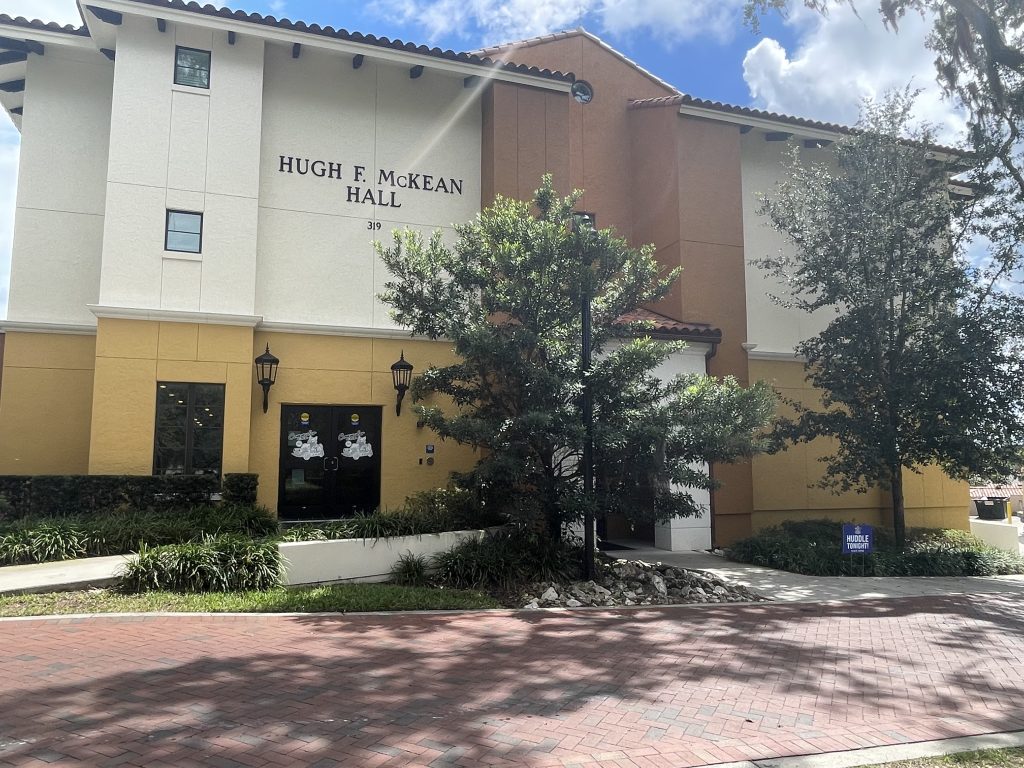A long day of class, a weary student, a comforting and quiet area. Commuters, like students living on campus, have a space on campus for themselves, providing easement and leisure. In recent weeks, it has been popularized on campus that there is a commuter lounge set in one of the residence halls, for the convenience of those that come and go.
With signs located around campus directing students to it, the commuter lounge, or Commuter Club, as it is known by those who use it, is a small space located in McKean Hall reserved for commuter students to enjoy and relax before, between, and after classes.
“The lounge serves as a private place of respite for our commuting students similar to the way a residence hall and room would be to our residential students,” says Executive Director of Retention and Student Services Michelle Perez. With the idea of students in mind, one of the main goals of the commuter student lounge is “to provide off-campus students with a space of their own that would help them feel at home and part of the Rollins community.” As it continues to grow into the future, Perez explains, “it can become a place commuters can come to rely on for information, community, and networking.”

Inside, the student lounge is complete with couches and several seating options, with amenities such as lockers for personal storage, a microwave, and a refrigerator. Also found inside are two meeting rooms, a bathroom, and a decorative neon sign to make the space a true home-away-from-home. Jane Dias (‘27), a commuter, says, “It’s super helpful having a space to put my things so I don’t have to keep everything in my car. I usually go to the lounge once or twice a week to study.”
Along with the facilities offered, the location of the lounge adds to what piques student interest. Since it is reserved and private, it is easier to “find space here than it is in, say, the library,” says Katelyn Manuncy (’28). “It’s mainly a quiet, tucked away little area that not many people can disturb.”
The quiet common room aids the traveling students in feeling included on campus. This inclusion measure works not only for students’ benefit, but it also can benefit the college in turn.
According to Perez, the college aims to increase the rate of student retention to 90% over the course of the next few years. Realizing that 35% of CLA students commute, with more to come in the following years, Perez remarks that “commuting students, on average, retain approximately 7 percentage points less than their peers.” With the efforts of those who have helped put together the space, the lounge could help set their levels of retention higher.
Perez says, “In years past, many residential students would use the commuter lounge as a passthrough to the residence hall, creating an environment that was less than welcoming or useful to our commuting students.” The goal is to keep the space inclusive for all commuter students yet exclusive to just commuters—on-campus students are only permitted to enter McKean Hall through the main entrance—preserving the quiet, relaxed nature of the Commuter Club.








Comments are closed.